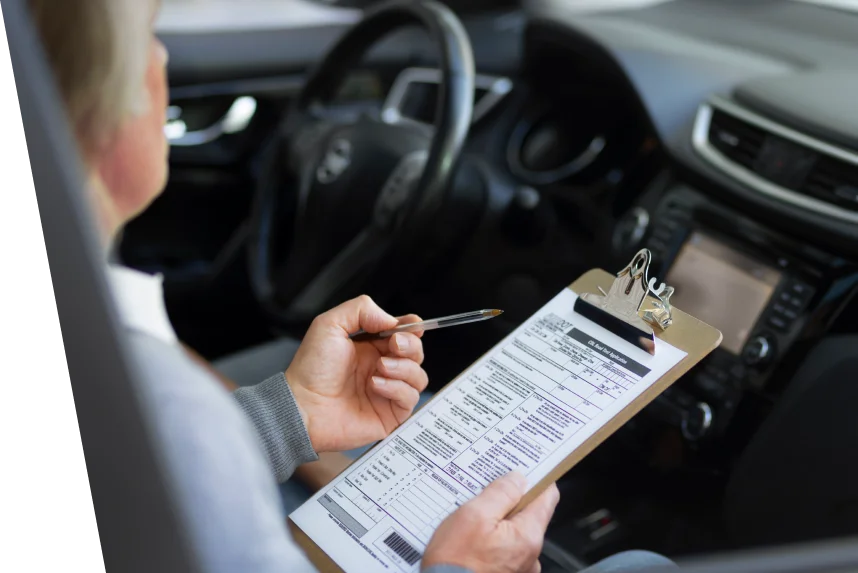

When it comes to the world of professional chauffeurs, a common question that often arises is, “Does a chauffeur need a license?” The answer to this query is more nuanced than a simple yes or no. Chauffeurs, who are responsible for providing safe and luxurious transportation to their clients, often require specific licenses to operate legally.
In this article, we will delve into the licensing process for chauffeurs, the steps to obtain and maintain a chauffeur’s license, and the benefits that come with being a licensed chauffeur.
In most regions, obtaining a license to work as a chauffeur involves several essential steps. The precise requirements can vary depending on your location, so it’s crucial to check with your local regulatory authority or transportation agency for specific guidelines. However, here is a general overview of the typical licensing process for chauffeurs:
Meet Age Requirements: Typically, you must be of a certain age, often 21 or older, to qualify for a chauffeur’s license.
Valid Driver’s License: Before pursuing a chauffeur’s license, you need to possess a valid standard driver’s license. This license serves as the foundation for your chauffeur’s license.
Clean Driving Record: Chauffeurs are expected to maintain clean driving records. This means no serious traffic violations or DUI convictions. Any history of reckless driving may disqualify you from obtaining a chauffeur’s license.
Training: In some areas, you may need to complete specific training programs or courses related to chauffeur services. These programs can help you acquire the necessary skills and knowledge for the job.
Application Process: Submit an application for a chauffeur’s license to your local licensing authority. This application will likely include a background check and fingerprinting.
Pass Written and Practical Tests: Chauffeurs are often required to pass written tests covering topics such as road safety, customer service, and local traffic regulations. Additionally, a practical driving test may be part of the licensing process to assess your driving skills.
Pay Fees: There are fees associated with obtaining a chauffeur’s license. Be prepared to cover these costs as part of the application process.
Vehicle Inspection: Some regions may require your chauffeur vehicle to undergo safety inspections to ensure it meets all safety standards.
Obtain Insurance: Chauffeurs typically need commercial auto insurance to cover their passengers adequately. Check with your insurance provider to ensure you have the right coverage.
Once you’ve obtained your chauffeur’s license, it’s essential to understand that maintaining and renewing it is an ongoing responsibility. Here are some key points to keep in mind:
Stay Informed: Keep up to date with local traffic laws and regulations to avoid any violations that could jeopardize your license.
Continuing Education: Consider taking additional courses or training to improve your skills and stay competitive in the chauffeur industry.
Renew on Time: Chauffeur licenses have expiration dates, and it’s crucial to renew yours on time to avoid any disruptions in your chauffeur career.
Safe Driving: Maintain a clean driving record by driving safely and responsibly at all times.
Obtaining and maintaining a chauffeur’s license offers several advantages:
Legal Compliance: Operating without a proper license can lead to legal issues and fines. Having a license ensures that you are compliant with local regulations.
Enhanced Professionalism: A chauffeur’s license demonstrates your commitment to professionalism and safety, which can attract more clients.
Increased Earnings: Licensed chauffeurs often have the potential to earn more than unlicensed drivers due to the trust and confidence they inspire in clients.
Insurance Coverage: Licensed chauffeurs can typically access better insurance options, which provide more comprehensive coverage in case of accidents or incidents.
In conclusion, the question of whether a chauffeur needs a license can be answered with a resounding “yes” in most cases. Licensing not only ensures that you are legally allowed to provide chauffeur services but also demonstrates your commitment to professionalism and safety. If you aspire to embark on a career as a chauffeur, it’s essential to research and adhere to the specific licensing requirements in your region. By doing so, you can enjoy the benefits of being a licensed and reputable chauffeur while providing safe and luxurious transportation services to your clients.

July 15, 2024 | 6.00 pm

July 6, 2024 | 5.40 pm

June 29, 2024| 9.00 pm

June 22, 2024| 8.45 pm

June 15, 2024| 2.40 pm

June 1, 2024 | 8.40 pm

May 23, 2023| 8.00 pm

May 18, 2024 | 8.40 pm

May 14, 2024| 02.40 am

May 07, 2024 | 6.45 pm

Apirl 27, 2024 | 01.06 pm

Apirl 16, 2024 | 07.46 pm

Apirl 10, 2024 | 09.24 pm

Apirl 07, 2024 | 08.55 pm

Apirl 04, 2024 | 02.00 pm